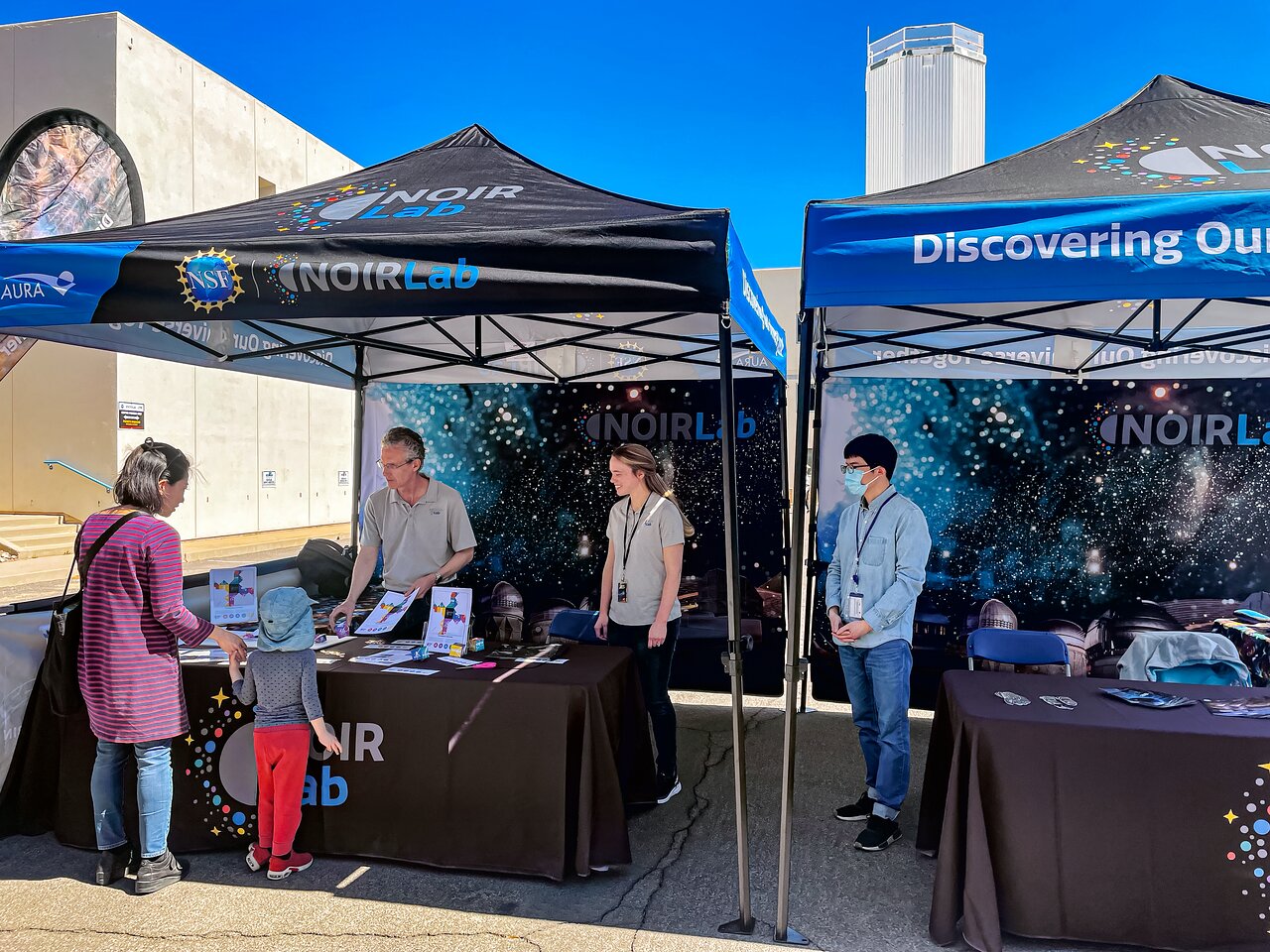NSF NOIRLab Shares Astronomy Activities at Tucson Festival of Books
March 16, 2022

On 12 and 13 March 2022, NSF’s NOIRLab made its debut at the annual Tucson Festival of Books, sharing fun astronomy activities and talking about NOIRLab’s Programs and roughly 70 world-class telescopes with hundreds of curious members of the public. This was the first large-scale, face-to-face event at NOIRLab’s Arizona facilities since the start of the COVID-19 pandemic.
NOIRLab set up its display and activities next to its Headquarters building on Cherry Avenue in Tucson, Arizona, which was a highly trafficked area as people walked to the festival on the University of Arizona campus. NOIRLab staff provided safe solar viewing through telescopes, melted pennies with sunlight using a large Fresnel lens, provided stickers, brochures, and other giveaways, and introduced a new NOIRLab cube game.
“The Tucson Festival of Books was a great opportunity to engage with the public and introduce NOIRLab to the local community and to those visiting the festival from out of town,” said NOIRLab Director Patrick McCarthy.
First held in March 2009, the Tucson Festival of Books attracted over 130,000 visitors per year before the COVID-19 pandemic. It returned in person this year after being canceled in 2020 and hosted virtually in 2021 because of the pandemic. The National Optical Astronomy Observatory (NOAO), which became part of NOIRLab, participated in the festival in past years, but this was the first opportunity for NOIRLab to interact with festival-goers since the organization was established in October 2019.
More information
NSF’s NOIRLab(National Optical-Infrared Astronomy Research Laboratory), the US center for ground-based optical-infrared astronomy, operates the International Gemini Observatory(a facility of NSF, NRC–Canada, ANID–Chile, MCTIC–Brazil, MINCyT–Argentina, and KASI–Republic of Korea), Kitt Peak National Observatory (KPNO), Cerro Tololo Inter-American Observatory (CTIO), the Community Science and Data Center (CSDC), and Vera C. Rubin Observatory(operated in cooperation with the Department of Energy’s SLACNational Accelerator Laboratory). It is managed by the Association of Universities for Research in Astronomy (AURA) under a cooperative agreement with NSF and is headquartered in Tucson, Arizona. The astronomical community is honored to have the opportunity to conduct astronomical research on Iolkam Du’ag (Kitt Peak) in Arizona, on Maunakea in Hawai‘i, and on Cerro Tololo and Cerro Pachón in Chile. We recognize and acknowledge the very significant cultural role and reverence that these sites have to the Tohono O'odham Nation, to the Native Hawaiian community, and to the local communities in Chile, respectively.
Links
Contacts
Vanessa Thomas
Public Information Officer
NSF NOIRLab
T: +1 520 318 8132
Email: vanessa.thomas@noirlab.edu






